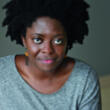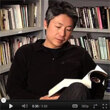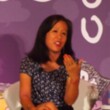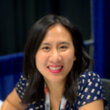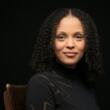Free Food for Millionaires
(Libby/OverDrive eBook, Kindle)
Available Platforms
Description
More Details
Excerpt
Similar Titles From NoveList
Similar Authors From NoveList
Published Reviews
Booklist Review
Lee mixes feminism and cultural awareness to create a sweeping story of first-generation Korean Americans finding their way between the old world and the new. Casey Han, her 22-year-old heroine, is having trouble turning her Princeton economics degree into a job. When her authoritarian father throws her out, she goes to her white boyfriend for solace only to find him with in bed with two sorority girls. Just as all looks lost, she meets a rich school acquaintance, Ella Shim, who offers her a place to stay and convinces her fiance to help Casey get a job. Casey's taste for expensive clothes keeps her in debt. Ella's shyness makes it easy for her husband to cheat on her. And Casey's father's coldness makes it hard for her mother to ignore kindness from another quarter. With very broad strokes and great detail, Lee paints colorful three-dimensional characters and outlines intergenerational and cultural struggles brilliantly. There is a little first-novel shyness on some issues but nothing the rest of the narrative doesn't make up for. --Elizabeth Dickie Copyright 2007 Booklist
Publisher's Weekly Review
In her noteworthy debut, Lee filters through a lively postfeminist perspective a tale of first-generation immigrants stuck between stodgy parents and the hip new world. Lee's heroine, 22-year-old Casey Han, graduates magna cum laude in economics from Princeton with a taste for expensive clothes and an "enviable golf handicap," but hasn't found a "real" job yet, so her father kicks her out of his house. She heads to her white boyfriend's apartment only to find him in bed with two sorority girls. Next stop: running up her credit card at the Carlyle Hotel in New York City. Casey's luck turns after a chance encounter with Ella Shim, an old acquaintance. Ella gives Casey a place to stay, while Ella's fiance gets Casey a "low pay, high abuse" job at his investment firm and Ella's cousin Unu becomes Casey's new romance. Lee creates a large canvas, following Casey as she shifts between jobs, careers, friends, mentors and lovers; Ella and Ted as they hit a blazingly rocky patch; and Casey's mother, Leah, as she belatedly discovers her own talents and desires. Though a first-novel timidity sometimes weakens the narrative, Lee's take on contemporary intergenerational cultural friction is wide-ranging, sympathetic and well worth reading. (May) (c) Copyright PWxyz, LLC. All rights reserved
Library Journal Review
All Korean American Casey Han has to show for four impressive years at Princeton is a taste for the finer things in lifeAwhich is why she needs a job. Lee finally emerges after a decade spent racking up fellowships and awards. (c) Copyright 2010. Library Journals LLC, a wholly owned subsidiary of Media Source, Inc. No redistribution permitted.
Kirkus Book Review
Lee's debut is an epic-scale hybrid of the 19th-century novel (Middlemarch is oft-cited here) and Bonfire of the Vanities, but it lacks Eliot's literary polish and Wolfe's exuberance. Casey Han is a recent Princeton graduate, daughter of Korean-born owners of a Manhattan laundry who want their daughter both to cleave to tradition and fulfill the immigrants' ethic of success. But rebellious Casey has rubbed shoulders too long with the rich and privileged, and she finds herself back in New York City with "no job and a number of bad habits." One bad habit is her white Master-of-the-Universe boyfriend, whom she catches in flagrante with two LSU coeds; another is a fatal taste for the posh life, especially haute couture. In a terrifying first scene, Casey quarrels with her father, who strikes her hard across the face, then banishes her. The rest of the book shows Casey navigating her 20s: There are erotic entanglements, employment woes, the delicate negotiations of family life. Casey's an appealing heroine, but the book strays from her story: Lee adopts an omniscient voice that swoops into the consciousnesses of dozens of characters, often unpersuasively. Few minor characters rise above stereotype or expectation. Still, some elements--Casey's struggles with faith, her tempestuous relationship with her mentor/benefactress, a department-store mogul--are handled with a subtlety that bodes well for future books. Fitfully entertaining but not extraordinary. Copyright ©Kirkus Reviews, used with permission.
Booklist Reviews
Lee mixes feminism and cultural awareness to create a sweeping story of first-generation Korean Americans finding their way between the old world and the new. Casey Han, her 22-year-old heroine, is having trouble turning her Princeton economics degree into a job. When her authoritarian father throws her out, she goes to her white boyfriend for solace only to find him with in bed with two sorority girls. Just as all looks lost, she meets a rich school acquaintance, Ella Shim, who offers her a place to stay and convinces her fiance to help Casey^B get a job. Casey's taste for expensive clothes keeps her in debt. Ella's shyness makes it easy for her husband to cheat on her. And Casey's father's coldness makes it hard for her mother to ignore kindness from another quarter. With very broad strokes and great detail, Lee paints colorful three-dimensional characters and outlines intergenerational and cultural struggles brilliantly. There is a little first-novel shyness on some issues but nothing the rest of the narrative doesn't make up for. ((Reviewed April 1, 2007)) Copyright 2007 Booklist Reviews.
Library Journal Reviews
All Korean American Casey Han has to show for four impressive years at Princeton is a taste for the finer things in lifeÄwhich is why she needs a job. Lee finally emerges after a decade spent racking up fellowships and awards. Copyright 2007 Reed Business Information.
Library Journal Reviews
Newly graduated from Princeton, twenty something Casey Han is back home with her hard-working parents in Manhattan, but the ill-tempered Casey chafes at their old-world ways and quickly moves out. In this oversized saga of New York yuppies, she spends the next four years trying to find her way, behaving badly to all who care about her and living the high life without the financial means. What could have been a fascinating study of the conflicts facing young Koreans in 1990s America—loyalty to their families, corporate racism, and the irresistible gimme glitter lure of the sophisticated urban lifestyle—is a flat footed disappointment. Over explanation of every feeling and a flood of distracting brand-name details unnecessarily pad this tale. Vulgar language, wooden dialog, and behavior both shallow and improbable leave the reader with the impression that little matters to Lee's large cast of characters but libido. The recipient of an impressive list of both fiction and nonfiction writing awards, Lee needs to find and trust her voice. Not recommended. [See Prepub Alert, LJ 1/07.]—Beth E. Andersen, Ann Arbor Dist. Lib., MI
[Page 61]. Copyright 2007 Reed Business Information.Publishers Weekly Reviews
In her noteworthy debut, Lee filters through a lively postfeminist perspective a tale of first-generation immigrants stuck between stodgy parents and the hip new world. Lee's heroine, 22-year-old Casey Han, graduates magna cum laude in economics from Princeton with a taste for expensive clothes and an "enviable golf handicap," but hasn't found a "real" job yet, so her father kicks her out of his house. She heads to her white boyfriend's apartment only to find him in bed with two sorority girls. Next stop: running up her credit card at the Carlyle Hotel in New York City. Casey's luck turns after a chance encounter with Ella Shim, an old acquaintance. Ella gives Casey a place to stay, while Ella's fianc gets Casey a "low pay, high abuse" job at his investment firm and Ella's cousin Unu becomes Casey's new romance. Lee creates a large canvas, following Casey as she shifts between jobs, careers, friends, mentors and lovers; Ella and Ted as they hit a blazingly rocky patch; and Casey's mother, Leah, as she belatedly discovers her own talents and desires. Though a first-novel timidity sometimes weakens the narrative, Lee's take on contemporary intergenerational cultural friction is wide-ranging, sympathetic and well worth reading. (May)
[Page 155]. Copyright 2007 Reed Business Information.Reviews from GoodReads
Citations
Lee, M. J. (2007). Free Food for Millionaires . Grand Central Publishing.
Chicago / Turabian - Author Date Citation, 17th Edition (style guide)Lee, Min Jin. 2007. Free Food for Millionaires. Grand Central Publishing.
Chicago / Turabian - Humanities (Notes and Bibliography) Citation, 17th Edition (style guide)Lee, Min Jin. Free Food for Millionaires Grand Central Publishing, 2007.
Harvard Citation (style guide)Lee, M. J. (2007). Free food for millionaires. Grand Central Publishing.
MLA Citation, 9th Edition (style guide)Lee, Min Jin. Free Food for Millionaires Grand Central Publishing, 2007.
Copy Details
| Collection | Owned | Available | Number of Holds |
|---|---|---|---|
| Libby | 5 | 3 | 2 |


























